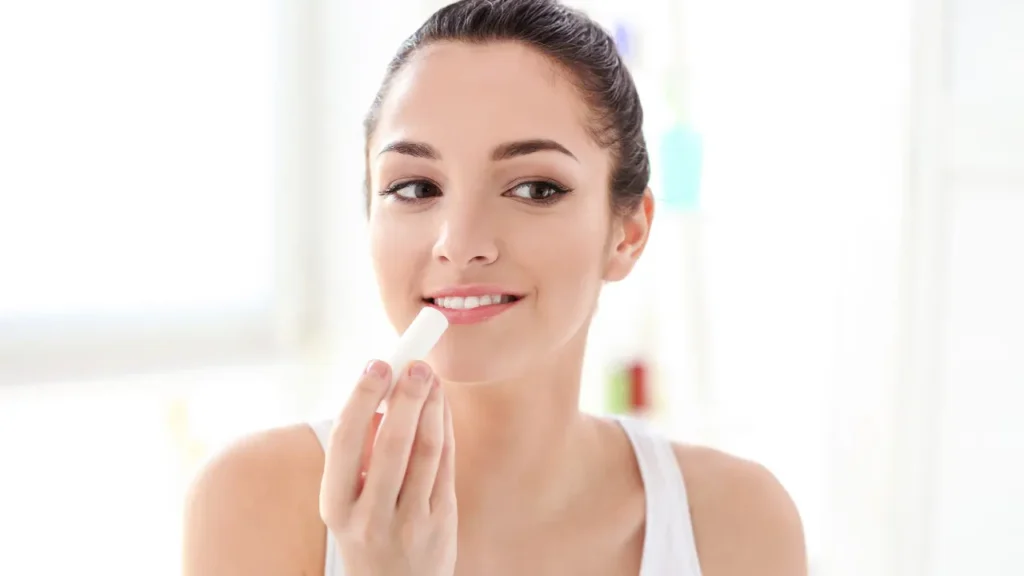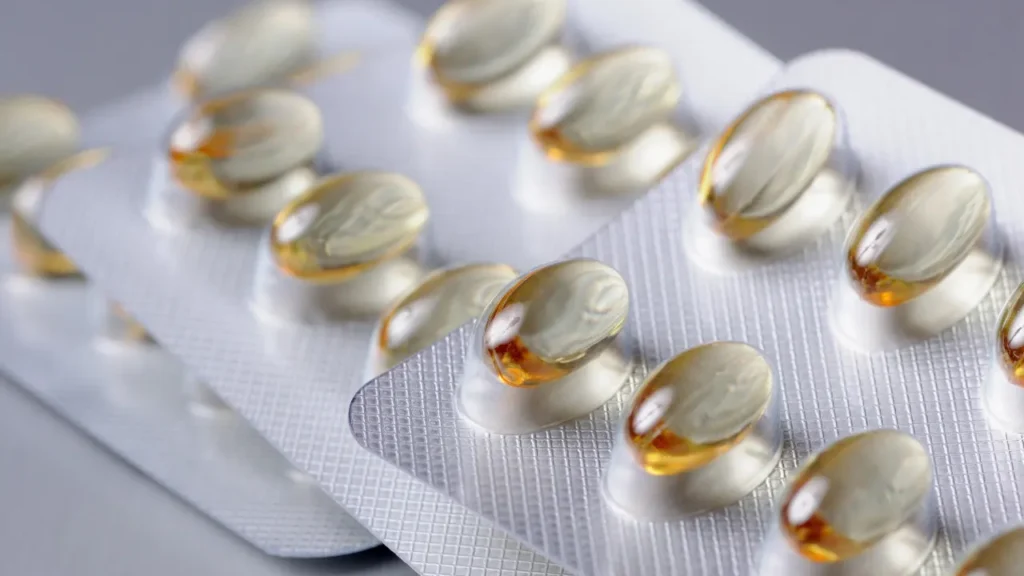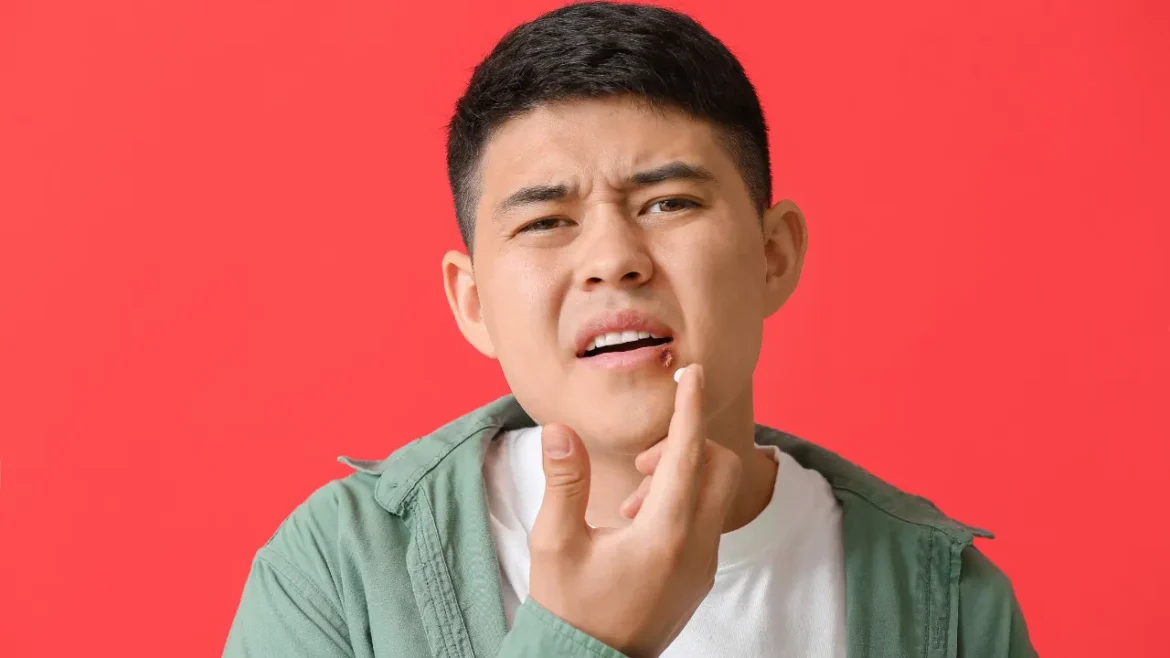Description
The virus termed herpes simplex virus (HSV), believed to be responsible for cold sores, is an extremely infectious virus that can be spread via direct contact with someone who is infected as well as by contact with that person’s skin or saliva. HSV can be found in two variants: HSV-1 and HSV-2. Despite the fact that both HSV-1 and HSV-2 viruses can result in cold sores, vaginal herpes, along with oral herpes can have a greater connection to each other.
Tingling or burning on or around the lips is typically followed by the emergence of small, fluid-filled blisters as the initial symptoms of a cold sore outbreak. These blisters can break, dribbling fluid and hardening into a crust. They are sometimes painful and are usually uncomfortable. Other symptoms, including fever, headaches, and swollen lymph nodes, can also accompany cold sores.
You May Also Like:
ROYAL BLEND CBD GUMMIES VS PARTNERED PROCESS GUMMIES
BEYOND THE HYPE: HOW CBD CAN HELP SENIORS ENJOY A BETTER QUALITY OF LIFE
Cold sores: Description, Causes, And Treatment Protocol is an original (HealthXWire) article.
Causes
The herpes simplex virus (HSV) is the culprit behind cold sores. HSV comes in two varieties: type 1 alongside type 2. Although type 2 is often linked to genital herpes, type 1 constitutes the most common type of cold sores. HSV is extremely contagious and can be transmitted by sharing utensils or kissing with another person. HSV may remain dormant within the body for many years after infection and be reactivated by a variety of factors, including illness, stress, or exposure to sunlight.
Exacerbating and Mitigating Factors
Cold sore breakouts can be exacerbated or started by a variety of circumstances. These can consist of the following:
Stress: The body’s immune system can be weakened by high amounts of stress, which makes it easy for the herpes virus to reactivate, resulting in cold sores.
Hormonal changes: As a result of hormonal changes, women might become more susceptible to developing cold sores during menstrual cycles or pregnancy.
Illness: Cold sore breakouts can be brought on by illnesses like colds, flu, and other viruses that decrease immunity.
Sun Exposure: Some people can trigger cold sore outbreaks as a result of excessive sun exposure.
Trauma: Cold sore outbreaks can be triggered by any injury to the lips, including a scrape or cut.
The following are some mitigating variables that can help you avoid or lessen the occurrence of cold sore breakouts:
Good Hygiene: HSV can be stopped from spreading by regularly washing your hands and refraining from sharing utensils or any other private items with others.
Stress Management: Exercise, yoga, meditation, and other stress-relieving practices can decrease the occurrence of cold sore breakouts.
Sun Protection: Lip balm with SPF can help protect your lips from harmful UV rays and reduce the possibility of sunburn-related cold sore outbreaks.
Good Nutrition: Cold sore breakouts can be avoided with a balanced diet that is rich in immune-stimulating zinc, vitamins E and C, and L-lysine.

Standard Treatment Protocol(s)
Although there is no known treatment for cold sores, there are ways to ease symptoms and shorten the time between outbreaks. Anti-viral drugs are frequently used in the usual procedure for treating cold sores, which can help lessen the severity and length of symptoms. These might consist of the following:
Acyclovir: The anti-viral drug called acyclovir can be applied topically, ingested, or administered intravenously. The HSV is prevented from replicating as a result of acyclovir.
Valacyclovir: Acyclovir and another anti-viral drug called valacyclovir are similar, yet valacyclovir is more potent and possesses a half-life that is longer.
Famciclovir: Another anti-viral drug that is comparable with acyclovir and valacyclovir yet is less popular is called famciclovir.
Anti-viral drugs can be recommended for a maximum of 10 days, although they work best when taken immediately as symptoms appear. Over-the-counter remedies can be useful in reducing symptoms in conjunction with anti-viral drugs. These might consist of the following:
Topical treatments: Cold sore pain along with itching can be alleviated by using topical medications, like creams or ointments comprising benzocaine or docosanol. Some topical remedies also include antiviral drugs, including penciclovir or acyclovir, which can hasten the healing process.
Pain relievers: Ibuprofen or acetaminophen, two over-the-counter painkillers, can help lessen the discomfort and swelling brought on by cold sores.
Cold Compresses: An ice pack can be used to soothe pain and reduce swelling in the affected region.
Lip Balms: Vitamin E, aloe vera, or beeswax lip balms are examples of hydrating substances that can help soothe and shield the lips from cold sores.
It is crucial to remember that not everyone will be a good candidate for anti-viral drugs along with over-the-counter remedies. Anti-viral drugs, for instance, may not be suitable for those who have specific medical disorders or weaker immune systems, while some people may experience negative side effects from them. It is also crucial to meticulously follow the directions on any prescriptions or treatments, and avoid picking or scratching at cold sores, since doing so might increase the risk of spreading infection or scarring.

Treatment Options
There are numerous complementary and alternative therapies that can be used in addition to traditional treatments to assist reduce symptoms or boost their effectiveness. These might consist of the following:
Nutritional Supplements: Alternative therapies such as nutritional supplements along with herbal treatments can help lessen the likelihood of cold sore breakouts and relieving symptoms. However, more research is required to determine the effectiveness of these treatments, and some research has indicated that a number of minerals, vitamins, and herbs can possess immune-stimulating and anti-viral properties that can help lessen the frequency and severity of cold sore breakouts. The following are some dietary supplements that could help treat cold sores:
- Lysine
An important amino acid called lysine may be able to stop the HSV from reproducing. According to several research, lysine supplements can lessen the number and extent of cold sore breakouts. Lysine can be ingested or given topically to the region that needs treatment.
- Zinc
The element zinc is important for immune system health and can lessen the occurrence of cold sore flares. In addition to being a dietary supplement, it is also present in foods including beef, oysters, and pumpkin seeds.
- Vitamin C
A strong antioxidant like vitamin C can strengthen the immune system and lower the likelihood of cold sore breakouts. According to several research, ingesting large amounts of vitamin C can reduce the time that cold sore breakouts last.
- Vitamin E
A vitamin that is fat-soluble called vitamin E can help lessen inflammation and speed up the healing of wounds. Using vitamin E oil directly on cold sores might decrease pain and inflammation, according to some research.

Herbal Remedies: Herbal therapies are organic, plant-based medicines that may be able to lessen the frequency and severity of cold sore breakouts by acting as anti-inflammatory, anti-viral, and immune-stimulating agents. The following are a few typical herbal treatments for cold sores:
- Echinacea
The herb echinacea may strengthen the immune system and be anti-viral. According to several research, echinacea supplementation may lessen the frequency and intensity of cold sore breakouts.
- Aloe vera
A plant termed aloe vera contains wound-healing and anti-inflammatory properties. Cold sores can be treated with it topically to ease inflammation and pain and also speed up healing.
- Lemon Balm
An herb with potential anti-viral and anti-inflammatory properties is called lemon balm, also referred to as Melissa officinalis. According to some research, using lemon balm cream topically on cold sores might decrease the extent and duration of breakouts.
- Licorice Root
One herb with potential anti-inflammatory and anti-viral properties is licorice root. According to some research, using licorice root ointment topically on cold sores might decrease pain and swelling.
- Tea Tree Oil
A possible anti-inflammatory and anti-viral essential oil is tea tree oil. According to several research, cold sore breakouts might be less severe and last fewer days if tea tree oil is applied topically.
- Stress Reduction Techniques
Deep breathing, meditation, and yoga are a few practices that can lower the chance of cold sore breakouts from occurring and ease symptoms because stress may be a significant trigger for them.

Conclusion
The usage of herbal treatments should be done so with the advice of a healthcare professional because they may interact negatively with other medications or have unwanted side effects. These medicines should be used carefully and in accordance with the directions as they might be irritating or potentially toxic if taken incorrectly.
Additional resources for further reference
https://www.webmd.com/skin-problems-and-treatments/understanding-cold-sores-basics
https://www.betterhealth.vic.gov.au/health/conditionsandtreatments/cold-sores
https://www.mayoclinic.org/diseases-conditions/cold-sore/symptoms-causes/syc-20371017
https://www.aad.org/public/diseases/a-z/cold-sores-treatment
Important Note: The information contained in this article is for general informational purposes only, and should not be construed as health or medical advice, nor is it intended to diagnose, prevent, treat, or cure any disease or health condition. Before embarking on any diet, fitness regimen, or program of nutritional supplementation, it is advisable to consult your healthcare professional in order to determine its safety and probable efficacy in terms of your individual state of health.
Regarding Nutritional Supplements Or Other Non-Prescription Health Products: If any nutritional supplements or other non-prescription health products are mentioned in the foregoing article, any claims or statements made about them have not been evaluated by the U.S. Food and Drug Administration, and such nutritional supplements or other health products are not intended to diagnose, treat, cure, or prevent any disease.
Table of Contents


